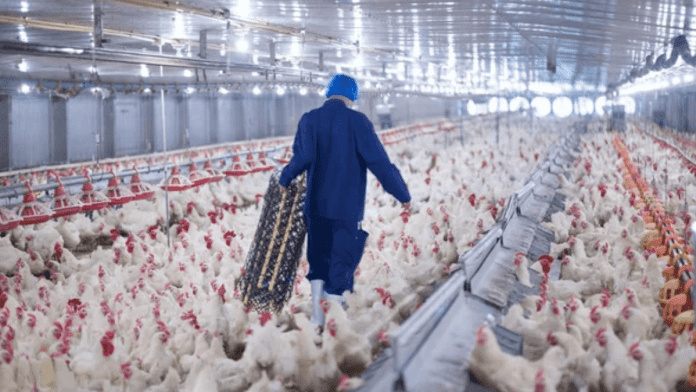News in Brief:
– French poultry farmers are concerned about Ukrainian companies building large-scale poultry farms in Croatia, which could flood European markets with cheap chicken, threatening local producers and food sovereignty.
– The projects, led by companies like MHP, integrate all stages of poultry production in centralised locations, potentially undermining EU agricultural goals and the economic viability of smaller, family-run farms.
The establishment of large-scale poultry farms in Croatia by Ukrainian companies has raised issues about fair competition, food sovereignty, and sustainable farming practices. This commentary will break down these concerns and their implications for farmers worldwide.
The EU and duty-free poultry imports
The European Union (EU) has reintroduced caps on the quantity of chicken that can be imported duty-free from Ukraine. However, these caps do not apply to poultry produced by Ukrainian companies within EU countries. This loophole allows Ukrainian agro-companies to build large-scale poultry farms in Croatia and benefit from the free internal market, bypassing the restrictions.
Two large Ukrainian agro-companies, MHP and PCC, are behind the controversial projects in Croatia. MHP plans to build 200 sheds housing 8 million chickens, according to a report. The site will be fully integrated, including hatcheries, feed factories, slaughterhouses, and workers’ accommodations. This massive scale of operation is unprecedented in Europe and poses a significant threat to smaller, family-run farms.
Concerns from French poultry farmers
- Competition and Market Impact: French farmers fear that the low-cost competition from these giga-poultry farms will undercut their market prices. This could jeopardize the viability of small and medium-sized poultry farms in France and across Europe.
- Food Sovereignty: The concept of food sovereignty refers to a country’s ability to control its own food production and supply. French farmers argue that these large-scale operations threaten their national food sovereignty by flooding the market with cheaper, mass-produced chicken.
- Sustainability and Farming Practices: The new projects are criticised for not aligning with the EU’s strategic agricultural goals, which emphasize reducing antibiotic use and CO2 emissions. The centralised and industrial nature of these farms contrasts sharply with the responsible farming practices and balanced remuneration of growers advocated by French family farms.
Financial and political aspects
Anvol, the French poultry farmers’ association, has called on the EU authorities and Parliament to withhold European funds from these projects. They claim that MHP has already received €400 million from the European Development Bank since 2008 for developments in Ukraine. Anvol argues that further funding for such projects contradicts the EU’s agricultural policies and strategic orientations.
Farmers worldwide can learn valuable lessons from this situation. The development of large-scale, integrated farming operations can have far-reaching consequences for local markets, sustainability, and food sovereignty. Key takeaways include:
- Market Dynamics: Understanding how large-scale operations can impact local and national markets is crucial for farmers to strategize and compete effectively.
- Sustainability Practices: Emphasizing sustainable farming practices and aligning with national and international agricultural policies can help farmers gain support and funding.
- Advocacy and Policy Influence: Farmers need to be proactive in advocating for policies that protect their interests and promote fair competition.



